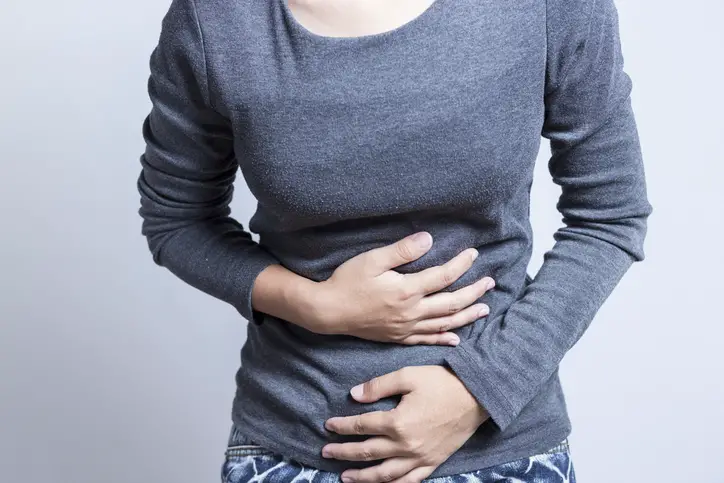Functional dyspepsia (FD) is a common condition, loosely defined by some physicians as a stomach ache without a clear cause. More specifically, it is characterized by the feeling of fullness during or after a meal, or a burning sensation in the mid-upper abdomen, just below the rib cage (not necessarily associated with meals). The symptoms can be severe enough to interfere with finishing meals or participating in regular daily activities.
Those with FD often go through multiple tests like upper endoscopy, CT scan, and gastric emptying study. But despite often-severe symptoms, no clear cause (such as cancer, ulcer disease, or other inflammation) is identified.
Acid reflux, the stomach, and the small intestine
Because there is no clear cause for symptoms, treating FD is challenging as well. The first step in treatment is usually to check for bacteria called H. pylori that can cause inflammation of the stomach and small intestine. If H. pylori is present, the person is treated with a course of antibiotics.
For those without H. pylori infection, or with symptoms that persist despite elimination of this bacteria, the next step is usually a trial of a proton-pump inhibitor (PPI). PPIs, which include omeprazole (Prilosec), esomeprazole (Nexium), and lansoprazole (Prevacid), suppress the stomach’s acid production. PPIs may help those patients whose FD symptoms are driven in part by acid reflux disease. PPIs may also reduce the concentration of certain inflammatory cells in the duodenum (the first part of the small intestine), which may also play a significant role in functional dyspepsia.
The brain-gut connection
Tricyclic antidepressants (TCAs) are another class of medications that are often used to treat FD. In some people, FD is thought to be due to an abnormal brain-gut interaction. Specifically, these individuals may have overactive sensory nerves supplying the GI tract, or abnormal processing of pain by the brain. TCAs such as amitriptyline (Elavil), desipramine (Norpramin), and imipramine (Tofranil) are thought to modulate this abnormal brain-gut connection. When used for FD, TCAs are typically prescribed at a low dose, where they do not exert any significant antidepressant effect.
However, a large proportion of people with FD also have ongoing anxiety, depression, or other mental health conditions. Addressing these conditions, often with the help of a trained psychiatrist or psychologist, can also improve FD symptoms. Psychological therapy has not been as widely studied as medications for FD. But a small number of studies have suggested that psychological interventions like cognitive behavioral therapy may be even more effective than medication; these interventions were shown to resolve FD symptoms in one out of three appropriately selected patients. In comparison, even the most effective medical treatments lead to symptom relief in approximately one out of six treated individuals.
Stomach accommodation
When you eat, the top part of your stomach relaxes, expanding your stomach volume to accommodate your me






